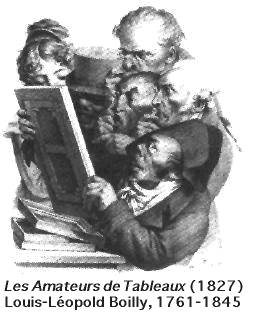|
Java, Guilt and Elitism: Curiosity in the First Draft of an Examination of Coffeehouse Aesthetic |
 |
|
by Maria Rios
Part of the university experience in Austin is the weekly trek to the local coffeehouse, where lips are quenched with stimulating liquid relief sipped from cracked and generous fountains (if the establishment is popular), and where the price of good conversation is the equal to the change in your pocket for refills. Austin coffeehouses are centers of cultural and intellectual banter, places whose charm is seasoned by heads bent over physics or French assignments, by the caffinated whispers of intimate truths unintentionally bouncing into every ear in the room, or by the professional "artist" who is all too willing to reveal his craft to the svelte and leggy inspiration of his latest sketch or verse scratched on grimy, java stained napkins. Coffeehouses are the sketchpads of verbal aesthetic, the site of transformation of ideas conceived in a womb of dim lights and wooden, sound-graffittied walls. However, as intellectually nurturing as these places are for conversation, music or litera, I find that if my eyes linger for too long on any of the walls, chances are that I'll interrupt any utterance with a
My reaction against coffehouse walls is beyond most people I know. Most of them don't know enough about art to accuse me of elitism and further, most of those probably consider the study of visual art and its history a useless act defined by the escapist dreams of those abnegating the reality of the white-collar, universal symbol of material success. Then there are those of my collegues who tastefully brand me uptight, because after all, it is common knowledge that artists create either for love/ethics or to make a buck (as demonstrated during the '80s). What's my argument? they ask as they tastefully refuse my argument for a more challenging one found in rusty texts full of yellowing ideas or the latest in departmental gossip.
Until recently, I did not know. I have dabbled with pen and ink in support of "x" personal cause. Simultaneously, my wobbly intellectual pretentions have bowed humbly before my need to survive, and thoughts of "selling out" in search for an immediately paying occupation come lap dancing forth in my dreams -- and yes, I've been tempted to run lustily into the hands of a bourgeoise utopia where Art Theory books serve as prosthetic legs for "bargain" Ethan Allen coffee tables. These conflicting forces -- the need to create and the need to avoid starvation -- aren't easy to balance. But I'll never attempt to sell my scratchings to the unsuspecting, uninitiated folk at any coffeehouse. Maybe I'm dumb for not doing it, but in the name of academic integrity, I choose not too. So my response to my colleagues is a declaration that I am a simple patron of the arts. In fact, I respect the efforts of every artist (even those I do not agree with) who has the courage to label himself or herself so, regardless of demonstrated ability. I explain that historically manifested expression is the subconscious pea underneath the 20th mattress of American (International) apathy that spurs not just reaction, but feeds and inspires action of the kind that can even -- heaven forbid -- start revolutions.
Art, however, is one of those chameleon nouns whose color changes with time, economics and generational world view; and I realize, too, that just like Dell employees, painters get hungry roughly three times a day. So I can forgive the pseudo-Frankenthaler or Hofmann with the accompanying pricetag that corresponds to Austin rent, yet I cannot support these spiritless works that are philosophical xeroxes of thought that could only be original when they were first created. And with this I will end the foundations of my unfinished argument. How can I reconcile the balance between economics and aesthetics that angers me so and still be a vehement supporter of free expression and the Austin visual artist community in general? I believe that art is about giving the benefit of the doubt and about always looking at the bigger picture -- so to speak -- and about learning when to trust the artist regarding his or her response to the world. In that scheme of things, every artist gains importance. Now, I think this draft, this series of musings and unanswered questions, deserves a bit of field work, and I only hope that my findings both for an argument and an answer to my coffeehouse angst will lead to a happy ending and the phrase, "Well, I guess it's only a matter of taste."
|
||
top | this issue | ADA home |
||
 viscerally interjected, "Damn, this art sucks!" And for the next 15 minutes my unsuspecting guest will be made hostage to the tyranny of academic training in art history until a slice of cheesecake is bartered to me in exchange for my silence.
viscerally interjected, "Damn, this art sucks!" And for the next 15 minutes my unsuspecting guest will be made hostage to the tyranny of academic training in art history until a slice of cheesecake is bartered to me in exchange for my silence.